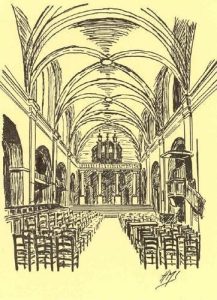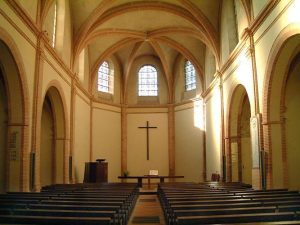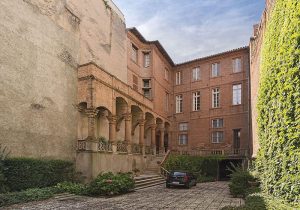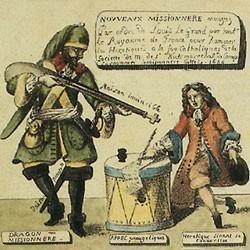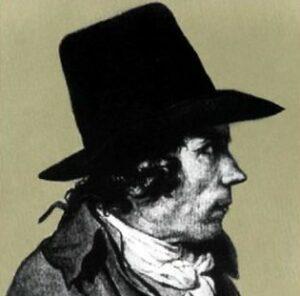Grand-rue Sapiac (Sapiac Main Street)
The buildings were pulled down during the wars of religion and the order banished from the city. In 1631, after the Edict of Pacification, the Carmes were reinstated in their former premises. They started rebuilding their convent complex thanks to significant financial help from the « Intendant » Foucault. The Church was completed in 1682, and the other buildings in 1717.
It seems that, as early as 1791, when the sale of the national property began, the Protestants considered acquiring the church. The acquisition was made in the name of Antoine Bernard Lauzet, a Protestant merchant from Nègrepelisse. Difficulties in obtaining the authorization to celebrate the cult, on the part of the municipality and the district board, provoked the intervention of Jeanbon Saint André, pastor in Montauban before the Revolution, at this time deputy to the Convention: On January 20, 1793, Pastor Duprat celebrated the first service.
Hôtel Mila de Cabarieu - A Private Mansion
The Carmes Convent was located outside the city walls, in the Sapiac outskirts. One can enter the old city just a few meters away from the Church where the ‘gate of the Carmes’ stands. Further down the beautiful colonnade of the Mila de Cabarieu Private Mansion can be seen. In the 16th century it belonged to Jonathan Garrisson whom « Intendant » Foucault deemed ‘the wealthiest believer in the city’.
The Carmes Temple
Temple Des Carmes, Église Protestante Unie de France, Montauban, France


